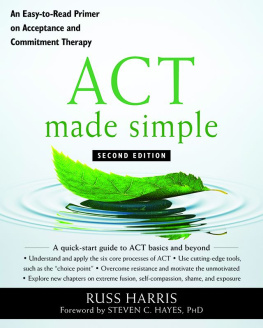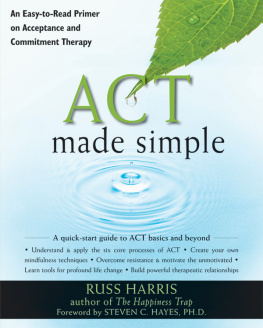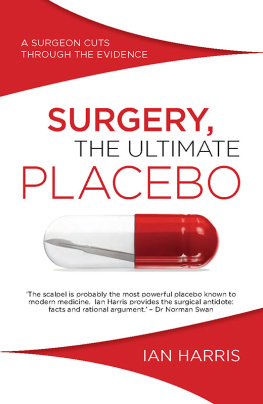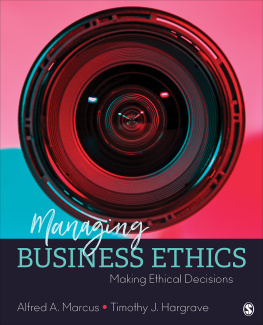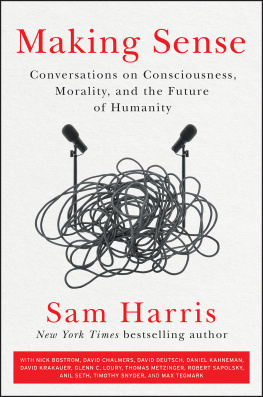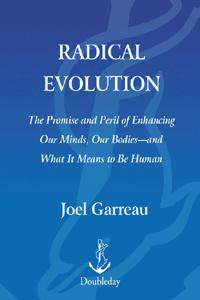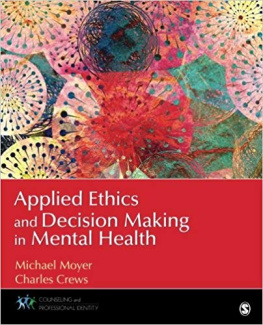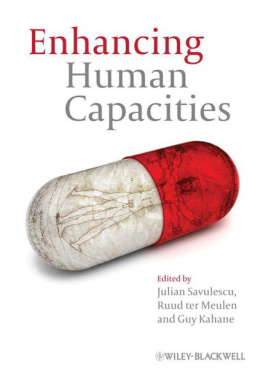Harris - Enhancing Evolution: the Ethical Case for Making Better People
Here you can read online Harris - Enhancing Evolution: the Ethical Case for Making Better People full text of the book (entire story) in english for free. Download pdf and epub, get meaning, cover and reviews about this ebook. City: Princeton, year: 2010;2007, publisher: Princeton University Press, genre: Romance novel. Description of the work, (preface) as well as reviews are available. Best literature library LitArk.com created for fans of good reading and offers a wide selection of genres:
Romance novel
Science fiction
Adventure
Detective
Science
History
Home and family
Prose
Art
Politics
Computer
Non-fiction
Religion
Business
Children
Humor
Choose a favorite category and find really read worthwhile books. Enjoy immersion in the world of imagination, feel the emotions of the characters or learn something new for yourself, make an fascinating discovery.

- Book:Enhancing Evolution: the Ethical Case for Making Better People
- Author:
- Publisher:Princeton University Press
- Genre:
- Year:2010;2007
- City:Princeton
- Rating:5 / 5
- Favourites:Add to favourites
- Your mark:
- 100
- 1
- 2
- 3
- 4
- 5
Enhancing Evolution: the Ethical Case for Making Better People: summary, description and annotation
We offer to read an annotation, description, summary or preface (depends on what the author of the book "Enhancing Evolution: the Ethical Case for Making Better People" wrote himself). If you haven't found the necessary information about the book — write in the comments, we will try to find it.
Harris: author's other books
Who wrote Enhancing Evolution: the Ethical Case for Making Better People? Find out the surname, the name of the author of the book and a list of all author's works by series.
Enhancing Evolution: the Ethical Case for Making Better People — read online for free the complete book (whole text) full work
Below is the text of the book, divided by pages. System saving the place of the last page read, allows you to conveniently read the book "Enhancing Evolution: the Ethical Case for Making Better People" online for free, without having to search again every time where you left off. Put a bookmark, and you can go to the page where you finished reading at any time.
Font size:
Interval:
Bookmark:
| Enhancing Evolution
The Ethical Case for Making Better People
With a new preface by the author
John Harris

Copyright 2007 by Princeton University Press
Published by Princeton University Press,
41 William Street, Princeton, New Jersey 08540
In the United Kingdom: Princeton University Press,
6 Oxford Street, Woodstock, Oxfordshire ox20 1TW
press.princeton.edu
All Rights Reserved
Fifth printing, and first paperback printing, with a new preface, 2010
Paperback ISBN: 978-0-691-14816-8
Cloth ISBN: 978-0-691-12844-3
Library of Congress Control Number: 2007928679
British Library Cataloging-in-Publication Data is available
This book has been composed in Palatino
Typeset by T&T Productions Ltd, London
Printed on acid-free paper
Printed in the United States of America
10 9 8 7 6 5
| For Jacob
The most significant developments in the ethics of enhancement since the first edition of this book was published in 2007 reflect the way in which our increasing ability to alter, adapt, and increase human functioning requires us to reconceptualize our ideas of what it is to be human, and indeed the very concepts of human and humanity. Beyond this we need to expand our moral horizons to consider the possibilities of transhuman and nonhuman persons (some of whom may already exist at the present time). It is clear to me that excessive preoccupation with ourselves as we are, instead of constructive thinking about ourselves as we might (and perhaps ought to) be or become, is one of the chief obstacles not simply to progress, but perhaps even to survival. I attempt in the pages that follow not only to make clear why this is so but also to indicate some of the most promising pathways to innovation, not simply in terms of scientific and technological discovery, but also in terms of human nature and possibilities.
This reconceptualization of the parameters of the human and the possible transcendence of those parameters started some years ago, when initial interest centered on the field of sports,
In this preface to the paperback edition of Enhancing Evolution I want to consider briefly three possibilities that did not receive attention in the 2007 edition. One is a family of technologies, grouped under the not particularly illuminating heading of synthetic biology, that continue to arouse interest. Another enhancement possibility that is gaining ground and that has not received the attention it deserves is moral enhancement, and finally, the possibility of memory-enhancing and memory-inhibiting drugs has raised some interesting new issues.
One of the most dramatic and important of the new technologies that will produce new creatures is synthetic biology. When people talk about synthetic biology and synthetic life, they may have in mind Frankenstein scientists in the lab making creatures out of old socks and coat hangers, or perhaps some bubbling vat of biochemical primeval soup, out of which will arise either a monster or a perfect specimen of humanity. This, however, is far from likely or at least far in the future!
Synthetic biology is the name now used for a cluster of new technologies in which biomolecular components (natural or synthetic) are newly combined or reorganized in order to create novel genetic and biochemical circuitry, pathways, and ultimately organisms. It may be thought of as a hybrid discipline between science and engineering.
Synthetic biology has caught the imagination not least because it marks the beginnings of what looks like the possibility of manufacturing life forms from scratch and eventually of creating tailor-made creatures in our own image or in principle in the image and with the attributes of anything we like, or at least of anything we can engineer. This is heady stuff, and if it works it may give us unprecedented powers, which like all powers may be used for good or evil or simply wasted by lack of use.
Many people believe we humans have been made in the image of God, by a God who, presumably, likes the way she looks. Is it the hubris of such a prospect, however remote, that makes the possibility of humans doing the same so daunting and so dramatic? However, it is not hubris to believe we can do good and try to do it. In this sense synthetic biology raises issues that are in essence the theme of this entire book, but it is important to think about whether there are any special problems associated with the creation of synthetic or artificial surrogates for natural processes or phenomena. The natural/unnatural distinction, insofar as it can be coherently drawn, is often appealed to, but I believe it has never been endowed with any moral significance whatsoever. People often affect a preference for the natural, but when reminded that people naturally fall ill and die prematurely and that the viruses and bacteria that often attack us and inflict indiscriminate pain, suffering, and death are all perfectly natural, whereas the vaccines and treatments with which we combat them often are not, the moral power of the distinction evaporates. Indeed the entire practice of medicine and medical science seems to be best characterized as the comprehensive attempt to frustrate the course of nature. A further reminder, if one is needed, is the suggestive case of synthetic sunshine, an imitation of the natural of immense practical importance and one of the earliest enhancement technologies.
Before synthetic sunshine people slept when it was dark and worked in the light of day. With the advent of synthetic sunshine, firelight, candlelight, lamplight, and electric light, work, including study and other attempts to improve the mind, and indeed social life could continue into and through the night, creating competitive pressures and incentives for those able or willing to use them to their advantage. The solution, however, was not to outlaw synthetic sunshine but, perhaps belatedly, to regulate working hours and improve access to the new technology and think hard about how to manage and control the pressures it created.
Synthetic sunshine created two of the features that are most deplored today in the prospect of, for example, smart drugs (discussed in ); synthetic sunshine created positional advantage, enabling some people to gain an edge over their fellows, and competitive pressures either to maintain that edge or in others to equal and even surpass it. Should we (or, rather, our early ancestors) have turned our backs on synthetic sunshine and gone back to sleep and said thanks but no thanks? Surely, the right response to things that confer significant benefits to humans individually and collectively is not to say no thanks but rather yes please. Of course, we must also work hard, tirelessly and ceaselessly, to make sure that the benefits or their effects are as widely and as fairly available as possible.
I have not discussed the possibility of so-called moral enhancement hitherto, first because I believe that education, both formal and informal, and cognitive enhancement are the most promising means of moral enhancement that are so far foreseeable. The other main reason that moral enhancement is not so far on the horizon is that moral dispositions, motives, and awareness are, I believe, so complex as to be unlikely to be susceptible to enhancement in the foreseeable future, if ever. It is, however, worth saying something about why I believe this to be so. Ethical expertise is not being better at being good; rather, it is being better at knowing the good and understanding what is likely to conduce to the good. Those with the insight, sympathy, empathy, and knowledge to have formed clear ideas of what might conduce to the good are not necessarily better at making the world a better place, for a number of familiar reasons.
Next pageFont size:
Interval:
Bookmark:
Similar books «Enhancing Evolution: the Ethical Case for Making Better People»
Look at similar books to Enhancing Evolution: the Ethical Case for Making Better People. We have selected literature similar in name and meaning in the hope of providing readers with more options to find new, interesting, not yet read works.
Discussion, reviews of the book Enhancing Evolution: the Ethical Case for Making Better People and just readers' own opinions. Leave your comments, write what you think about the work, its meaning or the main characters. Specify what exactly you liked and what you didn't like, and why you think so.

